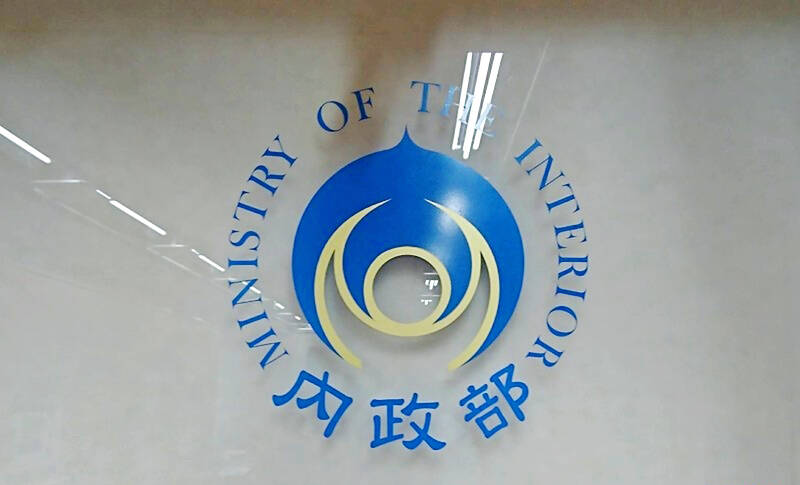An amendment requiring government permission for people working with government-funded core technologies to travel to or transit through China entered a mandatory 60-day notification period on Thursday, the Ministry of the Interior said yesterday.
The amendment to the Regulations Governing Entry Permission to Mainland China for Government Employees and Persons with Special Status in the Taiwan Area (台灣地區公務員及特定身分人員進入大陸地區許可辦法) would implement requirements introduced following an earlier amendment to the Act Governing Relations Between the People of the Taiwan Area and the Mainland Area (台灣地區與大陸地區人民關係條例) made on June 8, the ministry said.
The June amendment was made in response to frequently reported cases of Chinese-funded enterprises disguising themselves as Hong Kong or other foreign-funded firms to poach Taiwanese talent or steal “core” technologies, the Mainland Affairs Council said at the time.

Photo: Chen Yu-fu, Taipei Times
Following the amendments, employers of those working with core technologies who wish to enter or transit through China would be required to notify the National Immigration Agency and related agencies, and to receive permission from a review committee before the trip can be made, the ministry said.
The review committee would comprise members of the interior ministry, the National Security Bureau, the Ministry of Justice, the Mainland Affairs Council and “other relevant agencies,” the interior ministry said.
The amendment to the act specifically added a section on “Individuals or members of legal persons, organizations or other institutions entrusted, subsidized or invested to a certain level by government agencies (institutions) who engage in matters involving national core technologies,” and stipulates that such people would need permission to travel to China for up to three years after they cease working with such technologies.
Under the amendments, an applicant seeking to travel to China must either be traveling on behalf of the organization or agency employing them to attend meetings or engage in business-related activities, or have a spouse or close relatives in China, the interior ministry said.
Those with comments or suggestions related to the most recent amendment can contact the interior ministry before the notification period ends on Jan. 30, it said.

INVESTIGATION: The case is the latest instance of a DPP figure being implicated in an espionage network accused of allegedly leaking information to Chinese intelligence Democratic Progressive Party (DPP) member Ho Jen-chieh (何仁傑) was detained and held incommunicado yesterday on suspicion of spying for China during his tenure as assistant to then-minister of foreign affairs Joseph Wu (吳釗燮). The Taipei District Prosecutors’ Office said Ho was implicated during its investigation into alleged spying activities by former Presidential Office consultant Wu Shang-yu (吳尚雨). Prosecutors said there is reason to believe Ho breached the National Security Act (國家安全法) by leaking classified Ministry of Foreign Affairs information to Chinese intelligence. Following interrogation, prosecutors petitioned the Taipei District Court to detain Ho, citing concerns over potential collusion or tampering of evidence. The

‘FORM OF PROTEST’: The German Institute Taipei said it was ‘shocked’ to see Nazi symbolism used in connection with political aims as it condemned the incident Sung Chien-liang (宋建樑), who led efforts to recall Democratic Progressive Party (DPP) Legislator Lee Kun-cheng (李坤城), was released on bail of NT$80,000 yesterday amid an outcry over a Nazi armband he wore to questioning the night before. Sung arrived at the New Taipei City District Prosecutors’ Office for questioning in a recall petition forgery case on Tuesday night wearing a red armband bearing a swastika, carrying a copy of Adolf Hitler’s Mein Kampf and giving a Nazi salute. Sung left the building at 1:15am without the armband and apparently covering the book with a coat. This is a serious international scandal and Chinese

Seventy percent of middle and elementary schools now conduct English classes entirely in English, the Ministry of Education said, as it encourages schools nationwide to adopt this practice Minister of Education (MOE) Cheng Ying-yao (鄭英耀) is scheduled to present a report on the government’s bilingual education policy to the Legislative Yuan’s Education and Culture Committee today. The report would outline strategies aimed at expanding access to education, reducing regional disparities and improving talent cultivation. Implementation of bilingual education policies has varied across local governments, occasionally drawing public criticism. For example, some schools have required teachers of non-English subjects to pass English proficiency

TRADE: The premier pledged safeguards on ‘Made in Taiwan’ labeling, anti-dumping measures and stricter export controls to strengthen its position in trade talks Products labeled “made in Taiwan” must be genuinely made in Taiwan, Premier Cho Jung-tai (卓榮泰) said yesterday, vowing to enforce strict safeguards against “origin laundering” and initiate anti-dumping investigations to prevent China dumping its products in Taiwan. Cho made the remarks in a discussion session with representatives from industries in Kaohsiung. In response to the US government’s recent announcement of “reciprocal” tariffs on its trading partners, President William Lai (賴清德) and Cho last week began a series of consultations with industry leaders nationwide to gather feedback and address concerns. Taiwanese and US officials held a videoconference on Friday evening to discuss the